Nuclear weapons gaffe in South Korea is a warning to leaders everywhere
By Janani Mohan | March 15, 2023
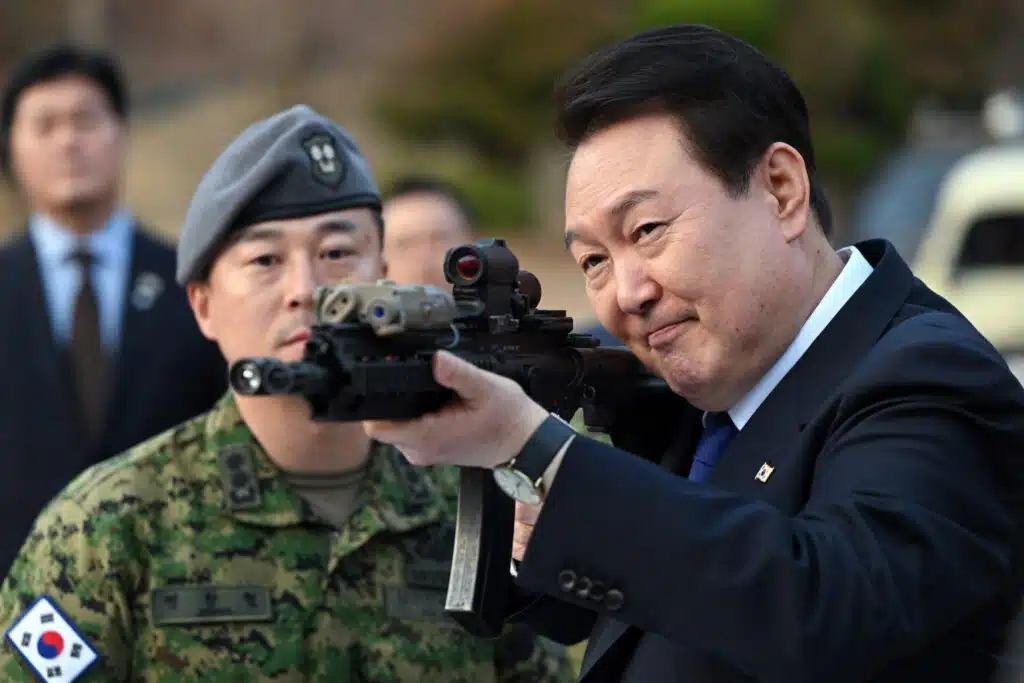 South Korean President Yoon Suk-yeol visiting the Navy Special Warfare Flotilla in March 2023. Official photo by Kang Min Seok/Presidential Security Service
South Korean President Yoon Suk-yeol visiting the Navy Special Warfare Flotilla in March 2023. Official photo by Kang Min Seok/Presidential Security Service
What would happen if South Korea developed nuclear weapons? A year ago, this question might have seemed as far-fetched as wondering what would happen if Russia invaded Ukraine. However, as the clock ticks closer to doomsday and global tensions run high, hypotheticals that we once laughed at have become possibilities to prepare for.
Comments like one recently made by South Korean President Yoon Suk-yeol have exposed the precariousness of the global nuclear nonproliferation regime. On January 11, President Yoon stated that if the United States were to fail to deploy nuclear weapons to South Korea when needed, the country would “acquire our own nuke.” According to observers, Yoon delivered these comments offhand during a rambling speech and then backpedaled a few days later. To be clear, South Korea is not actively pursuing homegrown nuclear weapons. However, the incident demonstrated an increased tolerance for casually suggesting nuclear proliferation.
Once viewed as an agreement that could only be broken with the harshest of consequences, the Nuclear Non-Proliferation Treaty (NPT) has been waning for decades, with North Korea withdrawing in 2003 and Iran threatening to withdraw in 2020. South Korea’s latest discussions on nuclear policy add a new layer—for the first time, a stable, democratic, non-nuclear weapon state and ally of the United States publicly considered, if only for a brief moment, developing nuclear weapons.
Although Yoon’s comments reflect the need for stronger assurances from the United States, such rhetoric can do serious damage to the NPT. If South Korea, a country that has strongly supported the treaty, considers leaving it, the NPT and the faith that other countries place in the treaty could weaken too. Incautious posturing by world leaders could signal the beginning of the end of nuclear nonproliferation.
South Korea’s shifting nuclear posture. Yoon’s latest comments reflect broader discussions on nuclear policy in South Korea in recent years, but they also represent a notable shift from previous statements. As North Korea’s escalatory behavior reaches new levels, so too has South Koreans’ willingness to develop nuclear weapons. South Korean public support for a domestic nuclear weapons program was at 71 percent in 2022, the highest in over a decade.
Although South Korean policy makers have explored greater militarization, they have avoided the nuclear option thus far. A joint US-South Korea statement in May 2022 reaffirmed the United States’ “extended deterrence commitment” to South Korea, “including nuclear . . . defense capabilities,” but also discussed the “common goal of the complete denuclearization of the Korean peninsula.” The statement called for expanding combined military exercises, increasing military training programs in South Korea, and other conventional responses to the North Korean threat.
Meanwhile, most nuclear rhetoric leading up to Yoon’s statements has consisted of debates over whether the United States should station tactical nuclear weapons in South Korea again. Such weapons were deployed between 1958 and 1991 in South Korea, and South Korean conservatives like Yoon have suggested that the United States either redeploy these weapons or train South Koreans to launch nuclear weapons if needed. The United States ruled out redeploying tactical nuclear weapons in 2021. Interestingly, in November 2022, South Korean Defense Minister Lee Jong-sup concurred that South Korea was “currently not thinking to deploy tactical nukes on the Korean peninsula.”
Given this previous nuclear posturing, the recent comments by Yoon are a significant change from South Korea’s previously stated policy. Since the 1970s, South Korea has actively supported the denuclearization of the Korean Peninsula, ending its program to domestically acquire nuclear weapons. Yoon’s statement hints at a potential reversal of this stance. There are three potential rationales for his comments: that South Korea would actually consider acquiring nuclear weapons and leaving the Nuclear Non-Proliferation Treaty; that South Korea wanted to send a warning to North Korea; or that it is using nuclear rhetoric to pressure the United States. All of these explanations are troubling, for these reasons:
Withdrawing from the treaty. This rationale is the most unlikely, but also the most worrisome. If South Korea were to withdraw from the treaty, it could have a domino effect on other countries. For South Korea to actually develop nuclear weapons, it would have to leave the treaty first, to avoid breaking its international obligations. This process has only been used by one country, North Korea, and it requires a three-month notice to the United Nations Security Council.
Although the consequences for leaving the treaty were severe for North Korea, South Korea might expect solidarity from countries that don’t want to develop nuclear weapons but oppose the inequality of the treaty. If South Korea’s departure were to set off a cascade of withdrawals, it’s unlikely that economic consequences would be levied broadly across several countries—and South Korea therefore would not suffer harsh consequences. In addition, there have been no international nuclear-related sanctions against countries with nuclear weapons that never signed the treaty (India, Pakistan, and Israel). Because South Korea remains a US ally, its leaders might believe that it would more seamlessly transition to a similar status outside of the NPT.
However, as is more probable, international pressure on countries considering withdrawal will ensure that South Korea does not attempt to leave the treaty. Although the consequences might be minimal, the international regime is inclined to disincentivize this behavior. Fear of sanctions and other consequences perhaps caused Yoon to dial back his remarks.
Posturing to warn North Korea. Yoon’s comments may have aimed to warn North Korea of the potential consequences of continued escalation. A couple weeks before Yoon’s statement, North Korean leader Kim Jong-un said he plans to “exponentially” increase North Korea’s nuclear arsenal. To prevent North Korea from expanding its nuclear weapons program, Yoon might have attempted to warn Kim Jong-un of potential consequences.
However, Yoon could not reasonably expect North Korea to slow proliferation in response to his comments, given Kim Jong-un’s history of responding to increased militarization in South Korea with more escalation, not less. If Yoon’s comments were intended as well-measured posturing, North Korea couldn’t have been his target.
Nuclear rhetoric to pressure the United States. Yoon’s broader statement discussed a hypothetical situation in which the United States fails to deploy nuclear weapons to South Korea when needed. US allies in East and Southeast Asia are concerned that, as the US eye increasingly turns to the war in Ukraine, Asia is falling into a blind spot of complacency. These concerns include worries about the strength of the nuclear umbrella that guarantees the United States will defend its non-nuclear allies and about the US security guarantee against China and North Korea.
Yoon’s statements might reflect frustration that the United States is not paying sufficient attention to the growing escalation on the Korean Peninsula. In 2022 alone, North Korea launched more than 90 missiles, the most in any year, including several that flew as far as the Sea of Japan. Given these rising tensions, Yoon might have been prodding the United States to reaffirm its nuclear guarantee.
Yoon suggesting the need for a stronger security umbrella from the United States might have prompted behind-the-scenes conversations between the two countries. In all likelihood, Washington and Seoul discussed this guarantee privately after Yoon’s comments, to ensure that South Korean leaders trust the US nuclear umbrella and are not seriously considering nuclear weapons. Yoon’s later remarks walking back his comments on developing nuclear weapons could reflect this.
The NPT is weakening. Even if Yoon’s concerns have been resolved, his willingness to use nuclear rhetoric as a negotiation tactic points to an ongoing global issue. South Korea is not the first country to use nuclear rhetoric, and it won’t be the last. However, when the potential development and use of nuclear weapons is discussed, the nuclear taboo slowly weakens.
Are low-yield, battlefield tactical nuclear weapons really as problematic as traditional nuclear weapons? Are high-yield conventional weapons really that different from low-yield nuclear weapons? These questions are worrisome because lowering the threshold for using nuclear weapons could lead to untold deaths, long-term environmental damage, and other severely negative consequences.
Regrettably, the nuclear taboo is not the only thing that might be weakening—so might the treaty itself. If countries that have traditionally been strong backers of the NPT start talking about leaving the NPT or developing nuclear weapons, this rhetoric showcases a growing lack of belief in the treaty. And, unfortunately, international law in many ways is only as strong as belief in the benefits and consequences of those agreements. Countries should regularly express their belief that international law is important, the NPT is invaluable, and leaving the NPT should never be considered.
At the height of the NPT’s power, many people, including South Koreans, would have viewed Yoon’s comments as highly escalatory. In today’s world, though, his comments are forgotten amid other, even more escalatory, nuclear rhetoric. If such comments become more commonplace, the NPT will continue to erode, raising global security issues and reducing protections against escalation.
World leaders must be more careful to avoid nuclear rhetoric. Otherwise, comments like Yoon’s could lead to the end of the nonproliferation era and the start of something much more concerning.
Together, we make the world safer.
The Bulletin elevates expert voices above the noise. But as an independent nonprofit organization, our operations depend on the support of readers like you. Help us continue to deliver quality journalism that holds leaders accountable. Your support of our work at any level is important. In return, we promise our coverage will be understandable, influential, vigilant, solution-oriented, and fair-minded. Together we can make a difference.
Keywords: Nuclear Non-Proliferation Treaty, South Korea, nuclear posturing
Topics: Nuclear Weapons, Opinion, Voices of Tomorrow

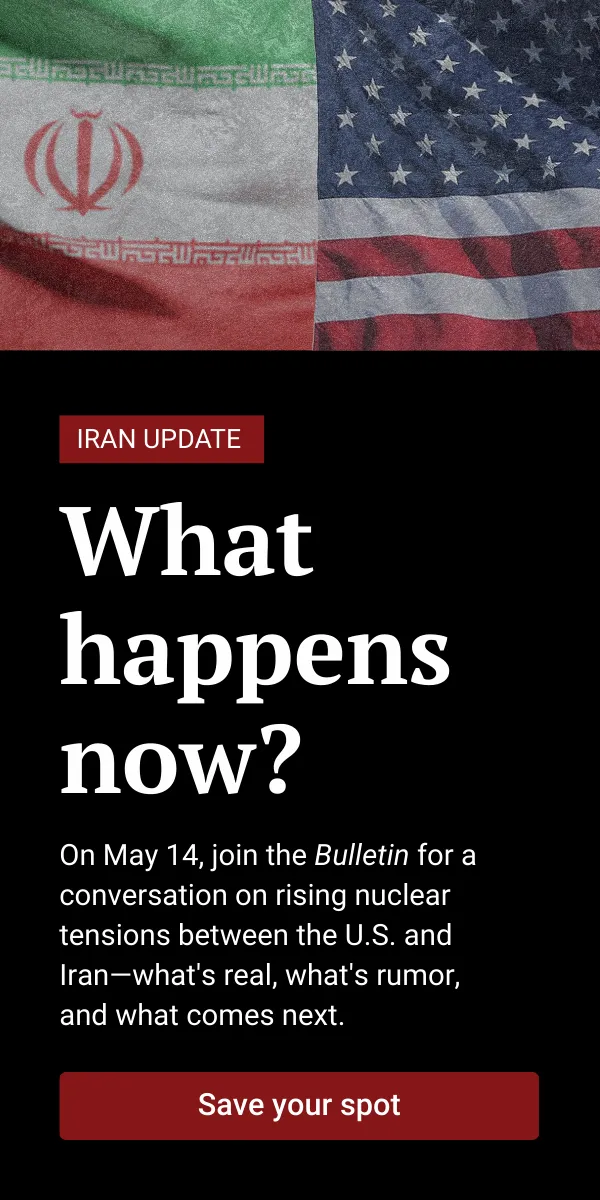

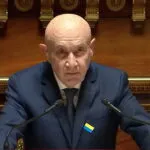

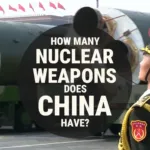
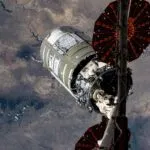
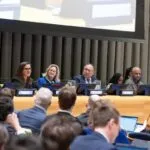

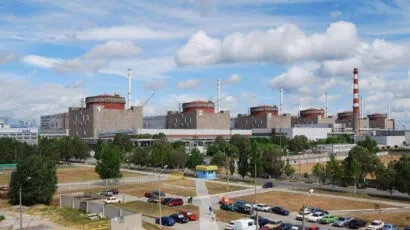
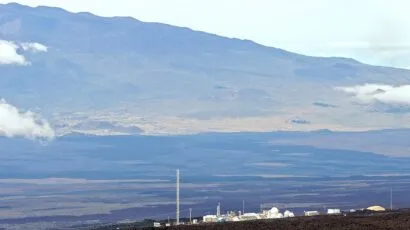
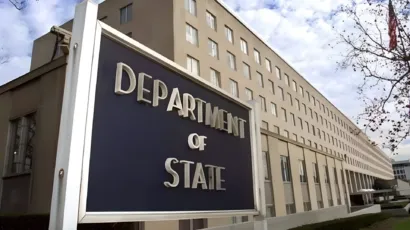


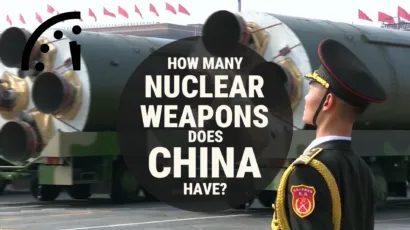
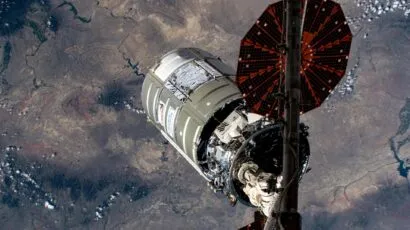
America will protect Taiwan….even with Nuclear On the Ground…..The property…. the Government..Canon Fodder
Ex Pershing A-1 Missile Crewman
Agreed.
Ex Pershing ll Crewmember
I disagree with the author on one major point. This is NOT the first time a democratic country had a nuclear ambition. Look at Israel they acquired nuclear weapons but had no shock factor for some reason.
South Korea has to developed it nuclear weapons and stop relying on U S . When President Trump couldn’t stop North Korea from achieving it Nuclear program, it means that US couldn’t stop also North Korea from using it nuclear on South Korea
NK cannot use nukes on SK because of -two- three things: 1: fallout blows back on NK, killing half of the population within 3 years, poisoning agricultural lands and waterways for decades. 2: US, UK and FR would retaliate within minutes, and Pyongyang would be a smoking crater.
3: China.
NK would cease to exist.
Maybe this is the new reality we are facing. After our illegal invasion of Iraq and a hurried military response to 9/11 putting us in Afghanistan, this is where we are at. World opinion is not virtually unanimously in our favor anymore and perhaps rightfully so. We must stop relying on military solutions and start engaging in real diplomacy. Diplomacy is best done from a stance of goodwill, not a stance of military threat.The world cannot afford a WW3.